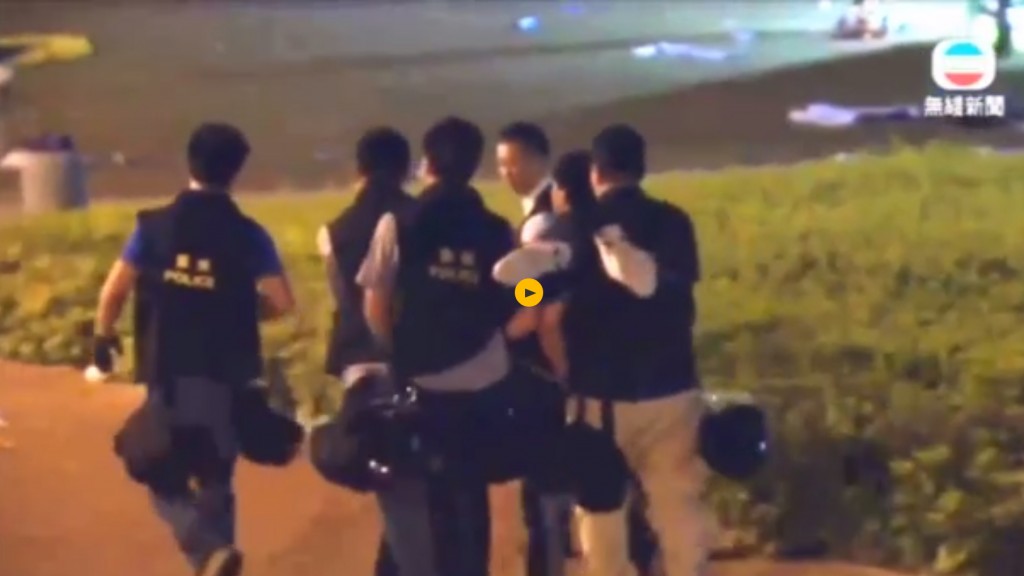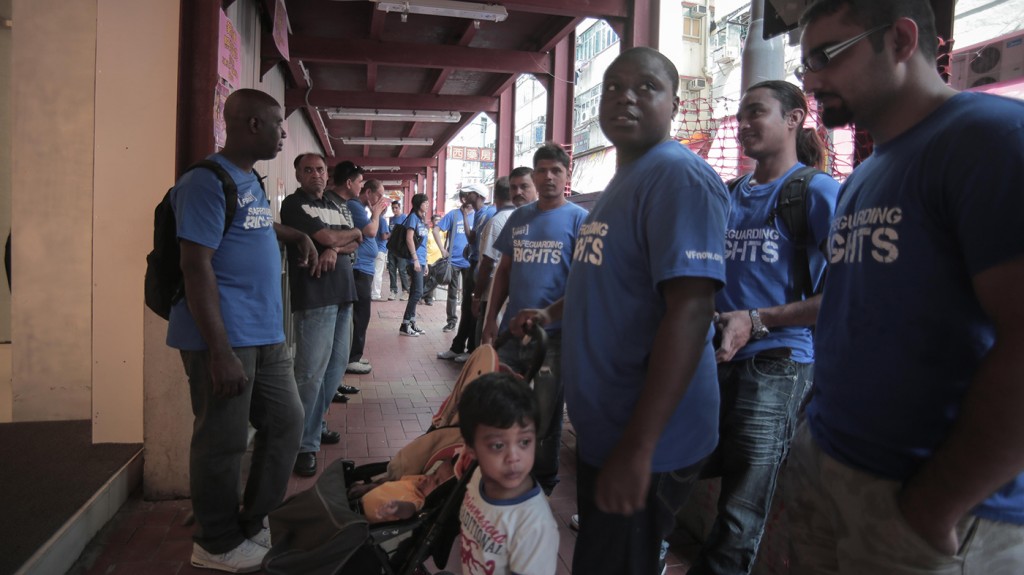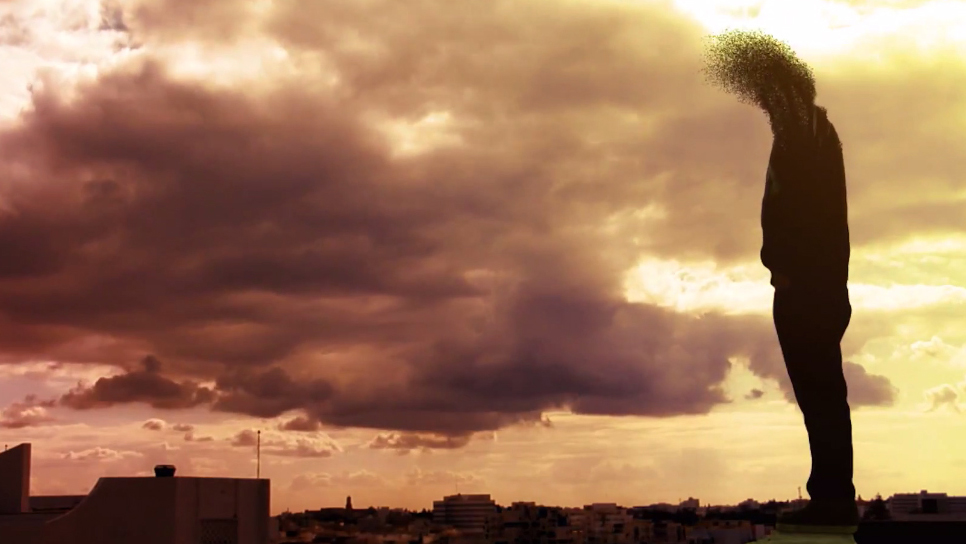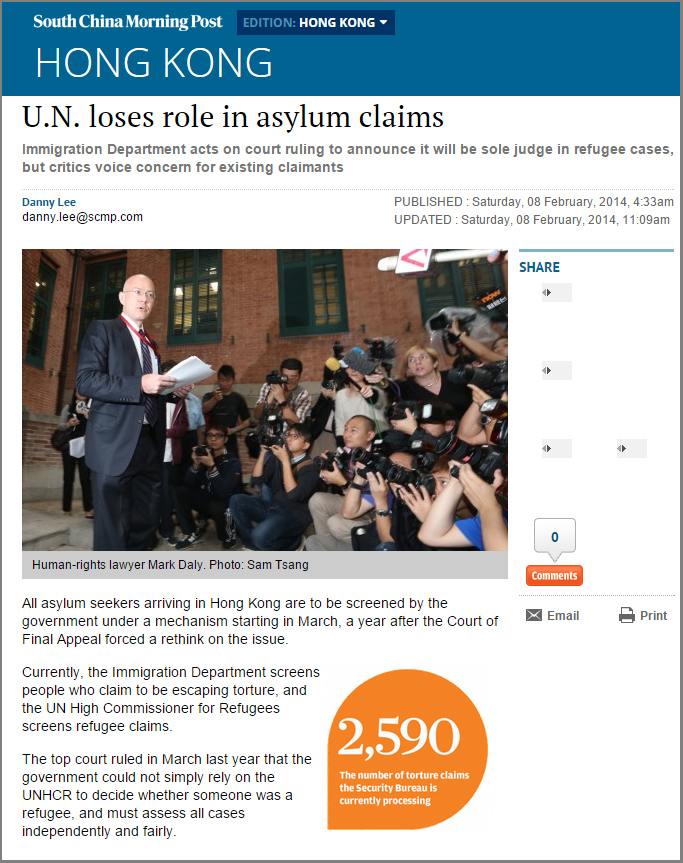Hong Kong needs a credible, transparent and expert-driven USM
Mar 3rd, 2015 | Immigration, Rejection, VF Opinion | Comment
The Unified Screening Mechanism (USM) will reach its first-year landmark on 3 March 2015 and the results achieved appear rather underwhelming and disheartening for refugees seeking the protection of Hong Kong Government. Immigration Department reports that as of 12 February 2015 five claims were substantiated, which Vision First understands to include 2 minors protected with their family.
The refugee community is concerned that in 23 years since the “UN Convention Against Torture” (CAT) was extended to Hong Kong in 1992, Immigration recognized only 28 cases as tallied by the South China Morning Post. Vision First sighted several Notices of Decision that included no less than 10 children counted as individual cases, thus further diminishing the impact of such unimpressive results.
Clearly statistics paint an incomplete picture, yet they are essential to evaluate the fairness of a screening process that accepted 5 claims and rejected 826 between March and December 2014 – a 0.60% acceptance rate that is deeply discouraging for 9618 individuals whose claims were outstanding at the end of last year. Some might suggest discouragement is the target here.
Granted that Immigration officers have at best one year experience with USM, we can only hope that high standards of fairness apply to determinations that are, “of momentous importance to the individual concerned. To him, life and limb are in jeopardy and his fundamental human right not to be subjected to torture is involved. Accordingly, high standards of fairness must be demanded in the making of such a determination.” (Court of Final Appeal “Prabakar” judgment, 2004)
“How do Immigration officers assess the situation in my country?” questioned an African refugee, “They don’t understand simple geography…. I have no confidence. Officers are not country experts. They print maps from the internet and learn from general websites that don’t explain the deep-rooted problems I faced. Shouldn’t I be worried about the quality of assessments?”
An Indian refugee said he had claims of police corruption in India rejected on the basis that India was a democracy and government websites called for a corruption-free administration in which offenders would be prosecuted to the fullest extent of the law. The claimant was faulted for having failed to report to the Police Anti-Corruption Bureau that village constables had drawn false charges against him allegedly upon the instigation of a rich and powerful land owner. Should he be deported?
There is a vast difference between what governments represent on official websites and law and order as implemented in the streets, where the enforcement action of anti-corruption bodies might not be taken seriously. That is the difference between theory and reality, the divergence between the rule of law and its application in the dark corners where human weakness prevails.
For that matter, police abuse in the cover of darkness isn’t unknown in developed countries.

Seeking asylum – Day One
Feb 25th, 2015 | Immigration, Refugee Community, Rejection, VF Opinion | Comment
“I am so scared. I haven’t slept for three days. I am afraid Immigration will arrest me and put me in CIC [detention centre]. I don’t want to be deported because I can’t go back to my country,” sighed a 40 year Srilankan mother who secured informal refuge in Hong Kong through the domestic worker scheme – not an unusual practice for women escaping domestic, gender, ethnic or political violence in her country.
Vision First accompanied Ibrahim of the Refugee Union on an escort mission to Immigration Skyline Tower, in Kowloon Bay, where new asylum seekers are required to report to the General Investigation Section prior to lodging non-refoulement claims. The process is nerve-racking for persons who overstayed visas, or might have entered illegally, and must then surrender to immigration authorities to establish a protection status and void being arrested by police in the street.
“Without the Refugee Union I was too scared to surrender. I didn’t reported for two years to Immigration after I was terminated. I didn’t know what to do. I am afraid the police will arrest me,” remarked an undocumented Indonesian woman whose passport was retained by an agency for failing to settle exorbitant fees relating to her dismissal. “I better be a refugee in Hong Kong than go back. I owe loansharks 82 million Rupiah. They threatened to kill me if I don’t pay back with interest!”
“Before taking them to Kowloon Bay,” explained Ibrahim, “we register new cases and email Immigration with details and copies of documents. Only after receiving replies I bring them here to make sure new [claimants] are not arrested. Officers play tricks with those who come alone, like refusing to accept claims for some reason, or demanding documents they cannot produce. But if we go with them they will not arrest you.”
The lavish decor of this prestigious commercial building contrasts starkly with the grim tasks faced by dozens of hopefuls who commence their asylum ordeal at Skyline Tower with understandable trepidation. They start queuing up every morning at 8am on the ground floor, among officer workers accustomed to their presence, knowing that by 1030 an unofficial daily quota is closed and latecomers are gruffly waved away.
On 24 February we spoke with citizens from Gambia, Pakistan, Nepal, Tanzania, Srilanka, India, Bangladesh, Vietnam, Nigeria and Indonesia who were unwilling to leave Hong Kong and understood that seeking asylum was the only pathway to remain legally for as long as they could. “I need more time. I have problems back home that make it dangerous for me. I don’t want to live in Hong Kong, but for now I must stay until I figure it out!” explained an African who had lived three years in China.
The lifts of Skyline Tower keep releasing a mix of colourful characters on the 5th floor landing. Confused and befuddled overstayers emerged with eyes darting left and right searching for clues. They were visibly nervous and probably uninformed about an asylum adventure that equally ill-informed peers might have recommended. At this stage, a credible and independent information service could possibly guide hundreds towards wiser and more practical choices.
Immigration officers at the only counter are likely challenged by a ten-fold surge in asylum claims: from 491 cases in 2013, to 4634 between March and December 2014. The authorities might find it hard to explain the unprecedented surge despite policies designed to avoid ‘creating a magnet effect which could have serious implications on the sustainability of our current support systems and on our immigration control.’ The time might have come to completely overhaul the asylum process.
The cultural clash at the General Investigation counter is absolute: on one side of the window is a strained officer fielding questions in English and Chinese (resident friends seem to prefer the latter); while on the other side an anxious bunch presses for attention without the benefit of a number system. It becomes clear why the meek and less assertive are bounced back week after week.
Here is the gate that should bear the infernal sign: “Abandon hope all ye who enter here!” it is here that passports are sequestered, sometimes not be returned for years, and options reduced. For a few hours the hopeful pace anxiously the 5th floor lobby where neither a bench nor stool welcomes the weary. Then the system starts to divide: the fortunate are asked to photocopy documents and take a photo (average cost 70$), while the unfortunate are given a notice to return in a week or two.
There is a sense of relief among those who received a numbered ticket to queue up for the photo booth in room 504. They appreciate that they were not detained and in the afternoon they will obtain a Recognizance Form 8 issued by Hong Kong Immigration to overstayers seeking asylum. At this moment, the hopeful care less about the zero percent acceptance rate and more about the opportunity to remain in town for a few more months or years.
After Immigration officially releases them on recognizance, having established a breach of the original conditions of entry – thus criminalizing them as overstayers – asylum seekers may proceed to the 9th floor to lodge a USM claim. The process is simple: they submit a now standard form that circulated since January 2013 (it was first distributed by Vision First) and request a photocopy with a date stamp. A few weeks later Immigration will follow up with a request for written significations of claims and eventually offer an appointment to record fingerprints and photos.
Three times a week Ibrahim guides Refugee Union members to Kowloon Bay. He jokes about an officer complaining, “Don’t keep bringing people here, you make us busy”. Another officer once asked him for ID and wasn’t satisfied when he produced a RU membership card. Ibrahim was unfazed, “If you don’t like it, arrest me and call the police. They will confirm that they registered the Refugee Union to help all these people who are waiting here and wonder the streets without papers.”
Rooting advocacy in dignity and respect
Jan 1st, 2015 | Advocacy, Rejection, VF Opinion, VF updates, programs, events | Comment
Dear VF members and supporters –
A refugee blogger reminded us that people should be judged by the breadth of their mind and the depth of their character, not by their social position or economic achievement, and certainly not by their immigration status imposed by states.
One would think that this fundamental notion should be generally accepted as obvious in our day and age, but does it consistently discharge ingrained preconceptions, cultural bias and ethnic stereotypes?
There is a wide range of views about what constitutes respect, a mindset that perhaps has less to do with how people are esteemed, and more to do with how others are treated. The Golden Rule might be taken as an acceptable universal standard, for it is found remarkably at the root of many cultures.
The Golden Rule states that, “One should treat others as one would like others to treat oneself.”
This ethic of reciprocity prescribes a mutual, two-way relationship between oneself and others that involves genuine equality in treatment, particularly as a fair formula to resolve conflicts. Advocates will recognize that this concept underpins most international treaties and many domestic laws relating to the treatment of those perceived with otherness, different or foreign, refugees or not.
In 2014 Vision First continued to undergo a significant evolution in order to replace a comfortable program-centered approach with a challenging watchdog core. This transformation didn’t come easy, but was necessary to adapt our agency to an emerging reality in the asylum sphere, which Vision First were instrumental in generating, namely, the emergence of the refugee activist.
Critics might lament that we are too radical, that we are incapable of collaborating and prefer to provoke conflict, than foster dialogue. We contend that the strong opinions informing our actions are supported by even stronger data extracted from the reality we observe daily.
Therefore we believe that the keystone is the Golden Rule in its cautionary form: “One should not treat others in ways that one would not like to be treated.” As unlikely as it is that we will ever experience the hardship of asylum, truth is that governments are increasingly irresponsive to citizen wishes and needs, other than the most powerful. What if one day we were humbled into calling for help and those we pleaded with turn the other way?
What would we think if forced to seek asylum in a country where protection was an empty, illusory promise? Would we then be outraged at a zero-percent acceptance rate? How would we appraise insufficient welfare without the right to work? Would we submit to living in rat-infested slums as directed by government contractors? Would we keep quiet if our food rations were pilfered? What would we tell our children if we couldn’t buy school books?
How would we then esteem a society that fails indifferently to act upon our grievances?
These might be questions far too remote and abstract for wealthy readers who enjoy, or so they believe, freedom of speech and social security. Such answers might reverberate in the warmer corners of our heart, where the spirit of humanity overshines misguided conformism and complacency.
We might find consolation in charity by giving to malnourished children in evidently distant geographies, but turn a blind eye to families suffering in our community. Would we sleep comfortably at night knowing that our donations might indeed cause more harm than good in the long run?
Vision First champions advocating fearlessly against injustice by consistently speaking bluntly to counter unfair policies and reprehensible activities, even when threatened with defamation. We are less concerned about what will happen to us personally, than the discrimination suffered by our members.
Perhaps the effectiveness of an advocate is best measured by what she is prepared to sacrifice, outside her obvious comfort zone, because personal misery has a distinctive way of clarifying one’s convictions.
Hong Kong is a hard and forbidding metropolis for those unfortunate enough to hold undesirable citizenship, or have experienced grim circumstances. It has been said that the measure of civilization and its moral progress should not be judged by the treatment of its highest people, but of its lowest. In this respect, each citizen decides whether to defer to power and privilege, or defend the vulnerable.
Vision First firmly contends that it is scandalous to hold anyone in poverty, want and insecurity. Our present mandate is to safeguard refugee rights and, as such, we shall redouble our efforts to counter unjust policies and intolerable practices apparently formulated to control rather than assist refugees.
Vision First thrives in conflict, open debate and change and we look forward to generating more in 2015.
Happy New Year!
New Year Message in PDF format

I am refugee
Dec 31st, 2014 | Crime, Personal Experiences, Refugee Community, Rejection | Comment
Does it matter who am I? Does it matter where I come from? I have been trapped in Hong Kong too long to distinguish between myself and the other thousands like me. I do not hear the clanging of gates, or the clinging of keys, but asylum stripped me of my freedom. It is prison by other means. I am refugee.
My life was torn apart by the insanity of war that makes no distinction between combatants and civilians. Nobody can sit on the fence, or claim neutrality, when the guns start firing. There are only two choices left: to fight or to escape. Either way the consequences become tragically unavoidable.
It so happens that I had travelled to China before and a valid visa permitted my hurried escape. I had never realized how expendable life was until I lost family and friends to human savagery. Such brutality reached me in the form of graphic photos that underscored how evil and vicious life can be.
That is the past and I have no way of changing it. I accepted my misfortune and my losses to avoid going mad wondering what might have happened had I made differently choices. The truth is that I lost the privilege of choosing after seeking asylum in a city-prison that doesn’t want me, but I am unable to depart.
Do I have the choice to opt out if I want to? Only if I could rewind time, could I avoid the invisible walls that imprison me in Hong Kong. There is no shame in my defeat, because events beyond my control swept me aside and sealed my cruel fate after destroying everything I cherished.
My life was interrupted by the shock of asylum when I realized that I will never be granted protection by HK government. Only 22 persons were granted asylum in Hong Kong out of 15,000 claimants since 1992. What are my chances? I have no future. Daily indignities destroy my self-respect as I beg for assistance with rent, food and incidentals, under threat of arrest and jail if I dare to work. I am refugee.
I believe that the dignity of a man is measured by the breadth of his mind and the depth of his character. Instead asylum labelled me a loser and tossed me in the garbage dump of humanity. I am worthless as I am denied legal status. I am powerless as I don’t have socio-economic rights.
Hong Kong judges me for what I have and by what I do for a living. I have nothing but the clothes I wear and I am prohibited from making a living, so I am disposable and easily forgotten. Nowadays so much value is given to social status and belongings that marginalized people are treated like lepers.
It is terribly ironic that by denying asylum, Hong Kong government also strips refugees of humanity. It feels like a huge betrayal of international treaties that these failures are glaringly self-evident: an effective zero-percent acceptance rate; endless waiting period; interminable assessment process stretched over years; protracted determination period that inevitably ends with rejection …
I felt profoundly betrayed when I realized that the Immigration Department’s asylum system was a farce. Never mind that the process stops and starts every few years and reforms are introduce with great fanfare, because results speak louder than words and justice cannot be heard.
(Name, Immigration and contact details provided)

U.N. loses role in asylum claims
Feb 8th, 2014 | Government, Immigration, Media, Rejection | Comment














